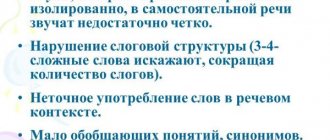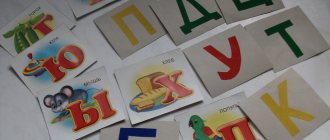The spelling of prefixes that end in “z” and “s” depends on which consonant, voiceless or voiced, the root of the word begins with.
In Russian spelling there is a rule related to phonetics - writing prefixes with “z” and “s”.
Let's list these prefixes:
- without-/without-;
- voz-(vz-)/voz-(vs-);
- from-/is-;
- bottom-/bottom-;
- about-without-/about-without-;
- times-/ras-;
- rose-/ros-;
- through-/through-.
Why are prefixes with z-s written the way they are heard?
Because voicing or deafening occurs. If there is a voiced consonant after the prefix, then it affects the final consonant of the prefix and makes it voiced. We will never say [distribution]. We can only pronounce [distribution]. And we write, accordingly, also.
If there is a voiceless consonant after the prefix, then the opposite situation occurs. The final consonant of the prefix also becomes voiceless. Therefore, you cannot say and write [promotion], you can only [promotion].
At school these processes are called voicing and deafening. But at a university it is more correct to use two other terms: “assimilation by deafness” and “assimilation by voicedness.” Assimilation = assimilation. The voiceless consonant becomes similar to the voiced one and also becomes voiced. The voiced person becomes like the deaf person and also becomes deaf.
Like this.
Correct articulation of the sound Z
The sound “Z” is a sonorous whistling sound; the formation of the organs of the speech apparatus is important for its pronunciation. The articulation of sibilants depends on the position of the tongue in the oral cavity and the shape that the tongue takes during speaking.
Features of articulation “Z”:
- The lips are stretched into a smile, the mouth is slightly open, teeth are visible.
- The jaw is not closed, there is a gap between the teeth.
- The wide tip of the tongue rests firmly on the lower front teeth.
- The lateral edges of the tongue are pressed against the molars, forming a hollow in the middle.
- A narrow gap is formed between the upper palate and the center of the tongue, through which an air stream passes.
- The soft palate is raised and pressed against the back wall of the pharynx, thereby closing the passage into the nasal cavity. Air passes through the mouth when speaking.
- The vocal cords tense and vibrate to produce the voice. When the voice is added, the exhaled air turns into a ringing sound “Z”.
Problems with the articulation of “Z” arise if the child has a flat tongue, it is difficult to form a hollow, and there are difficulties in speech breathing. Hissing defects spoil a child’s speech and require professional correction.
How to explain spellings in these prefixes
If you come across a prefix with z-s, then you need to explain the consonant in this prefix like this:
- Select the prefix.
- Underline “z” or “s” with one line. This way we show that these letters cause us doubt.
- Underline the consonant that follows the prefix with two strokes.
For example, in the word “to become furious” we will highlight the prefix “ras”, with one line we will underline the letter “s” in it, and with two lines we will underline the second “s”, which is after the prefix. It's enough.
When the letter "z" is written in prefixes
Before the voiced consonant at the root of the word, the letter “z” is written at the end of the prefix.
For example:
- joyless , _
- reward , _
- glance at _
- from product ,
- down to the bottom,
- obez g catch,
- Christmas time ,
- rose , _
- over moderation .
Note.
Only the prefix s- does not obey this rule. It is always written in a word, regardless of which consonant the root begins with.
Example: ruin, surrender, cut off.
Note.
In the Russian language there is no prefix z-, but there are words with the initial root consonant “z”.
Example: building, hello, here.
Remember!
There is no prefix Z- in the Russian language ! There is only the prefix S- Burn Escape Sing Make
Note.
There is a so-called “pitfall” in writing these words: unrealizable, inflexible, intractable, undeliverable, fireproof, not good enough.
Among these words there is no prefix un-, but there is a prefix niz-/nis-. This means that in the morphemic composition of these words there is not one, but two prefixes:
Thus, the prefix s- is hidden in the middle of the word. Even though a “z” is heard at the root before a voiced consonant, the prefix s- is still written.
Examples of words with prefixes ending in z-s
I will give a few examples of words with prefixes that end in z-s. Say each word out loud and practice mentally explaining the spelling of the prefix.
- Swallow without chewing.
- A heartbreaking scream.
- A beautiful queen.
- Scatter the crows.
- Make way, honest people!
- Tugarin the Serpent loosened his belt, not like before.
- I'll roam free!
- Spread the butter over the porridge.
- Color with pencils.
- Distribute into groups.
Preparatory exercises
Speech therapy correction work begins with the preparatory stage, which includes:
- preparing children for classes;
- exercises to train the articulatory apparatus;
- study of speech organs;
- familiarization with self-massage techniques;
- exercises to develop the muscles of the neck and shoulders;
- development of fine motor skills.
The lesson begins by inviting the child to play; you can tell him fairy tales about the Tongue. If you get your child interested, he will perform the exercises more actively, which means he will achieve a positive result faster.
Preparatory complex:
Children are more willing to do exercises with edible straws.
- Self-massage. The fingertips stroke the facial muscles in the direction of:
- from the middle of the forehead to the temples;
- around eyes;
- from the bridge of the nose to the ears;
- along the back of the nose up and back.
- Vibration massage. Tapping the wings of the nose while pronouncing the sound “M”.
- Studying parts of the speech apparatus in front of a mirror. Together with the child, name the speech organs and consider their location.
- Games for stretching and relaxing the muscles of the shoulder girdle: “Stretch”, “Cat”.
- Lacing games according to the Montessori system for training fingers and developing fine motor skills.
What else to read and watch
Watch my short video about how to correctly explain spelling. It will help you understand the general principle of working with all spelling rules. The rule about prefixes with z-s is just spelling.
Another useful video on how to learn Russian correctly:
And a few articles:
- How to learn to write correctly. The article contains a lot of practical advice. I explain how to improve your literacy in a short time and begin to feel more confident when writing texts and doing written work.
- What is spelling? In addition to the definition, you will find there tips and tricks on how to master spelling rules correctly and quickly.
- Russian language courses. I recently expanded this article and added free courses, simulators and electronic manuals to the very beginning. Read at least the first block, and then, if paid courses are not interesting to you, you don’t have to read.
Covid and money. Who is entitled to compensation in Russia?
How to live after coronavirus? Thousands of people know first-hand about post-Covid syndrome: when memory deteriorates, extreme fatigue sets in and smells change. How to deal with this?
Coronavirus continues to be the main topic of our time. The news comes in all sorts of different ways. For example, Japanese professor Ituro Inoue suggested that “almost a miracle” happened in the Land of the Rising Sun - the “delta” strain of coronavirus “self-destructed due to many mutations.” Several factors could have contributed to this, including the fact that Japan is a rather isolated country with very disciplined residents who have been vaccinated and follow protective measures.
It would seem that one can be happy about such positive news. But no: literally two days later, reports appeared that a new, even more dangerous strain of coronavirus, B1.1.529, called “omicron,” had spread around the world from South Africa. The strain has already reached Hong Kong; a single case has so far been identified in Israel, as well as in Europe.
The virus can both self-destruct and survive
Elena Afonina about this and much more related to coronavirus infection with general practitioner, oncologist surgeon, candidate of medical sciences Anton Ivanov and lawyer Artyom Davydovsky .
Elena Afonina: Anton Alexandrovich, how could the virus self-destruct? And what is this next “horror story” with a new “terribly dangerous” mutation of the coronavirus strain?
Anton Ivanov: If we talk about how the virus could self-destruct, we need to remember how it all began. In February-March 2022, we were told: in six months everything would be quickly eliminated, the virus would weaken and disappear. However, the situation did not resolve itself.
We must understand that the virus can survive. Now we are dealing with a new strain that only vaguely resembles the original matrix.
At the same time, we know how the Spanish flu, having wiped out half of Europe in two years, disappeared somewhere. Moreover, at that time there were practically no medicines against this disease, not to mention vaccines. Now the situation is somewhat different. We already know what preventive measures can be taken. And most importantly, we were able to isolate this virus.
“And those who have already suffered from the disease know for sure that their life will no longer be the same - the list of consequences and echoes of the virus is quite long. I would also like to talk about this.
Who will help cure the “Covid tail”?
Candidate of Medical Sciences, cardiologist, therapist, clinical pharmacologist Andrei Kondrakhin and Vyacheslav Zotov, who recovered from COVID-19, joined the conversation in the studio via video link.
– We contacted Vyacheslav to hear his story. The fact is that there are now quite a lot of jokes on the Internet about how after an illness the breasts begin to grow or some black spots appear on the fingers. In fact, everything is much more serious, and there is little reason for jokes. Vyacheslav knows firsthand what the consequences of coronavirus are. Vyacheslav, tell me, did you have a severe or mild form of coronavirus?
Vyacheslav Zotov: I was mildly ill and was treated at home.
– What consequences did you feel from the illness, what changed in your life?
V.Z.: Performance has deteriorated sharply. I work as a copywriter, writing texts for social networks and online stores. Now it’s quite difficult for me to concentrate on work, which, naturally, my customers don’t like. In addition, even before the coronavirus, I had fairly persistent insomnia. She was cured. But the coronavirus killed all these achievements, and insomnia returned. In addition, osteochondrosis has worsened. About two weeks ago my sense of smell became distorted. There are some difficulties in the formation of oral speech; I often forget words, what something is called.
– Some may say that Vyacheslav’s case is isolated. But it is not so. A good friend of mine, a fairly well-known journalist, had a hard time with COVID-19. And she says almost the same thing as Vyacheslav. She can't go live because she's afraid of forgetting the words. That is, she really had certain problems. How can this be explained, Andrei Petrovich? Are these all temporary problems?
Andrey Kondrakhin: Indeed, we see the changes that Vyacheslav listed. And such problems arise in people of different age groups. The main complaint is memory loss, and in some cases people experience disorientation. In addition, patients complain of paresthesia - twisting pain in the limbs. Recently there have been complaints of changes in heart rhythm and arrhythmia.
These problems are observed in almost all people who have suffered a new coronavirus infection. Associated with the etiotropic effect of the virus, which directly affects the nerve fiber, nerve tissue. And the loss of smell is precisely the first sign of a new coronavirus infection, which shows that changes are already taking place in the body. This starts from the very beginning and can last from several months to six months. COVID-19 is a long-term disease, it has a long “tail”, what we call post-Covid syndrome with various manifestations - from memory loss and panic attacks to problems with the cardiovascular system.
– There was a real case: a man felt ill on the street, atrial fibrillation, he was taken to the covid department, explaining this by the fact that atrial fibrillation now accompanies even the asymptomatic course of covid. This is true?
A.K.: This may already be post-Covid syndrome. Of course, atrial fibrillation is not always a harbinger of Covid. But, indeed, the reason for hospitalization is both arrhythmia with covid and arrhythmia without covid.
- Anton Alexandrovich, what do you say about this? We understand that the illness you suffered did not just add some inconvenience, but serious problems - the inability to perform work to the required extent, which means a loss in earnings. Do I understand correctly, Vyacheslav?
V.Z.: Yes. Due to low productivity, you have to work longer, the level of fatigue increases greatly, and it is difficult to concentrate.
A.I.: These complications do not always appear immediately during or after illness. Some manifestations may appear after two, three or more months, when a person begins to complain that he always forgets something, that it is difficult for him to concentrate if he drives a car. Some people report that their eyes “float away” and they suddenly switch to something else.
As a rule, these complications resolve over time without treatment. But we have certain rehabilitation programs, including neurorehabilitation, that allow us to level out these complications. It is, of course, worth considering that the depth of these complications can also vary.
– Vyacheslav, have you consulted a therapist at the clinic with these problems?
V.Z.: I contacted a neurologist, she told me to wait, because at the moment there is no adequate therapy. You can try some kind of detoxification program, according to your therapist. But for some reason it seems to me that this is not what is needed.
- So the doctors left you alone with this problem - wait until everything ends on its own? From the series - it’s not up to you, here the covidariums are filling up, but you walk around with your memory? And what should we do about this problem now, dear experts? After all, many people find themselves in a situation like Vyacheslav’s. It is clear that much has not yet been studied. What should we expect?
A.I.: We are now only gaining experience in treating such patients; the primary care doctor may not even fully understand this problem. But there are already specialists who know how to treat such complications. If one doctor could not provide assistance, you need to go to another, a third, a fourth.
- For money, of course, it’s faster. Because in the clinic you will find only one doctor - a therapist who will refer you to a specialist, a neurologist. And the neurologist will say that this has not been studied, so, sorry, we cannot help. Andrey Petrovich, is this scheme working now?
A.K.: I think you are exaggerating. In fact, if we are talking about primary care, everything depends on the competence of the particular doctor who is faced with the problem.
If we are talking about amnesia, some other diseases, or polyneuropathy, then treatment regimens, as a rule, have already been studied for other diseases. I absolutely agree with my colleague that we are only gaining experience in treating post-Covid syndrome. But we also know very well the general principles of treating neurological situations. Therefore, I think that Vyacheslav encountered a doctor who, for some reason, did not want to delve into his problems.
Post-Covid? Stay on sick leave!
– Now I propose to move somewhat from the medical plane to the legal one. Artyom Sergeevich, as a lawyer, can you tell me what to do for a person who has problems at work due to post-Covid complications, if he works not as a freelancer, but as a full-time employee? Can he count on the employer to reduce his workload and meet him halfway? Can this be done and how can it be documented?
– As for employees working under an employment contract with an employer, as far as I know, at the moment there is no separate targeted federal assistance program for them. There are programs in the regions where the authorities independently determine the amount of payments, the procedure for calculating them, and similar issues.
Unfortunately, in my opinion, everything is left to the employers. And somewhere they meet the employee halfway, reduce the workload, do not reduce the level of wages, and help with some kind of internal social benefits.
– And if I come to a neurologist and say: something is wrong with my memory, and I work as a presenter, what should I do? Will he give me a certificate stating that I cannot work for such and such reasons? And then my employer will consider this problem, who will say: since you can’t work, then let’s somehow reconsider our labor relations. It's real?
A.I.: This is not done from the patient’s words. Now there are certain tests indicating that the damage to the nervous system in a person is quite deep. In this case, sick leave may be issued for the duration of rehabilitation.
In addition, if a person developed severe pulmonary fibrosis post-Covid, which led to disability, then you can apply for disability. And here we are not reinventing the wheel - this is exactly the same disease as all those that came before.
– But this is already a deep damage to the body. What if it’s “either I remember or I don’t remember, I’m wrapping fish here”?
A.D.: The main thing here is that there is no connection to Covid, everything descends to the level of standard diseases and standard requirements for them. The first question that, it seems to me, a person will be asked: what is the cause-and-effect relationship between your memory loss and the experience of Covid. This may also be associated with other diseases or even be congenital.
Unfortunately, people working under an employment contract can only count on sick leave payments, which are very small. No one compensates for the difference between salary and sick leave pay. Covid is Covid, and legislation is legislation.
– Are there any real types of help, who is entitled to them?
– Yes, there are real types of help. Decree of the President of Russia No. 313 of May 6, 2022 defines additional insurance guarantees, but they apply to medical workers and members of their families: if a 1st group disability suddenly occurs, the person will receive an amount of 2 million 64 thousand 339 rubles.
For a disabled person of the 2nd group, compensation is provided for one million 376 thousand 226 rubles. Disabled person of the 3rd group – 688 thousand. It is indicated that the money is allocated from the Social Insurance Fund, which pays for all this.
Once again, this does not apply to all categories of citizens, but to medical workers, who must, in the prescribed manner, collect documents and confirm that the disease was contracted while performing their work duties, which implies direct contact of a medical employee with persons who have fallen ill and are suffering from coronavirus infection. And the most important thing is that all this needs to be properly documented.
The legislator has provided a fairly simple regime for processing payments. But on the ground, this all comes up against the fact that people cannot collect the necessary package of documents. And this is really a problem.
The “ Truth Vaccine ” program airs on First Russian on Fridays at 14:00. Do not miss!
Automation in spontaneous speech
Consolidating the sound “Z” in spontaneous speech includes adult control over the child’s pronunciation.
It is important to monitor correctness and immediately correct defects so that the child does not develop stereotypes.
You can return to each stage of sound production if necessary, and play games for reinforcement and automation.
Adult speech is the main tool for fixing sounds in a child’s phonemic structure. By surrounding children with literate speech, adults create an atmosphere for the correct development of their sound pronunciation.
Differentiation from consonant sounds
Preschoolers have problems distinguishing paired sounds. They often change “Z” to “S”. To solve this problem, the teacher offers differentiation games.
Work on differentiation of sounds is carried out in the following directions:
- development of auditory differentiation;
- consolidation of pronunciation differentiation;
- formation of phonemic analysis and synthesis.
First, the speech therapist asks you to feel the difference in pronunciation using your hand, which is located on your neck.
It is important for children to remember that with “Z” the throat vibrates.
Then children place an open palm in front of their mouth and feel the difference in the air stream that comes out when pronouncing similar sounds.
At the next stage, work is carried out with speech material with mixed sounds. Exercises are carried out to divide words into groups with different letters, gymnastic games with clapping and other movements.







